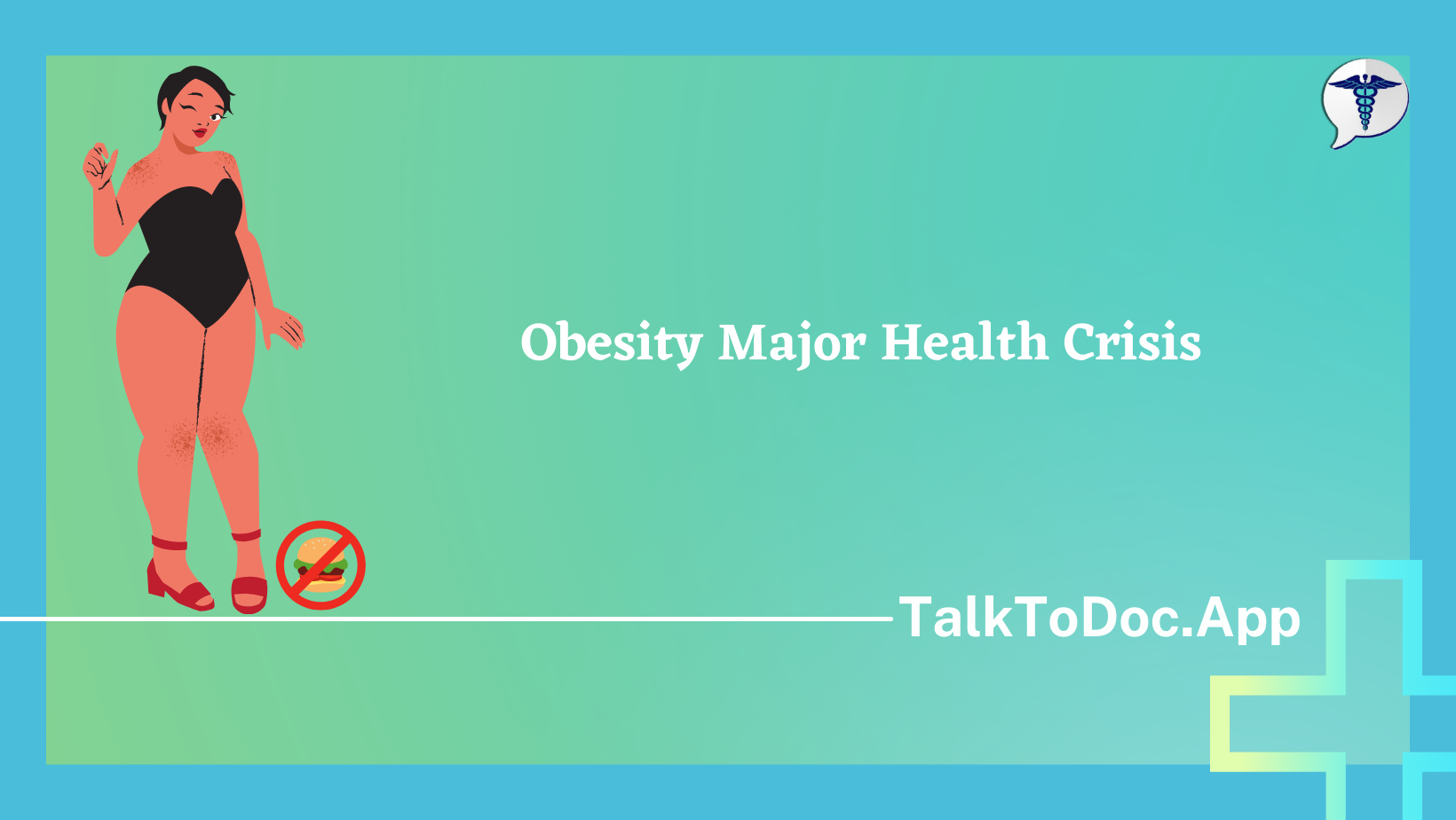Obesity Major Health Crisis
We are discussing ‘Obesity Major Health Crisis’ a condition which is affecting one-third of the population worldwide and increasing morbidity and mortality. The word obesity is derived from the Latin language obelus which means stout (fat) or plump. So how do we define Obesity?
The state of accumulation of fat in the body to such an extent that health may be impaired. The severity of obesity can be quantified using the BMI.
BMI= weight(kg) / height (meter^2)
A BMI that falls in the 85 to 95 percentiles for age and sex is considered overweight, while values above 95% are considered obese.
Obesity Types
Generalized that is gynoid/pear-shaped of obesity is characterized by the excess accumulation of fat diffusely in the subcutaneous tissue.
Central that is abdominal visceral and android obesity is the accumulation of fat in the trunk and the abdominal cavity.
It is associated with greater risk for several diseases like Diabetes 2 Mellitus Metabolic syndrome and cardiovascular diseases.
Cause of Obesity
It is a result of the caloric imbalance between energy consumption that is the intake of calories in the diet of and energy expenditure through exercise and bodily function. Genetic aspects of human obesity. Environmental contributors to human obesity.
Food
Reversible Causes of obesity like
Endocrine factor
- Hypothyroidism
- Insulinoma
- Cushing’s syndrome
- PCOS (stein Leventhal syndrome)
- Hypothalamic damage due to trauma tumor
Drug Induced
- Psychiatric and neurological medications
- Olanzapine
- Sodium valproate
- Flunarizine
- Steroid hormone
- Antidiabetic agents
- Insulin
- Sulphonylureas
- Thiazolidinedione
- Antihypertensive agents
Alpha-adrenergic and beta-adrenergic receptor blockers.
Studies have shown a risk of obesity changes depending on where you live due to:
Poor urban planning
• No playground for children
• Doesn’t get access to fresh vegetables hence consuming more packed food.
Fast food ads targeting away children
Due to false advertisement practices, low nutritious value food becomes alluring to our children.
On top of that, junk food is cheap leading to more consumption.
A complication of obesity is
Metabolic syndrome
Which is diagnosed by the presence of at least three of the following:
Abdominal obesity:
waist circumference >80 CM in women and 90 cm in men.
Body mass index >30 kg/m^2 & or Waist/hip Ratio 0.90 in men 0.85 in women.
Raised blood pressure
systolic >130 mm Hg or
diastolic >85 mm Hg
Raised fasting Glucose level (110-125mg/dl)
Raise triglyceride >150 mg/dl
Reduce high density lipoprotein (HDL) <40mg/dl.
Which becomes a triad of type two diabetes hypertension and hyperlipidemia.
Heart Failure
Gastroesophageal Reflux disease
- Iatus hernia
- Obstructive sleep apnea
In females, Menstrual abnormalities polycystic ovarian syndrome lead to infertility and hirsutism.
Management:
- The goal is initially to reduce weight about 10% from baseline.
- To reduce weight of about 0.5 to 1 kg for week for 6 months
- Trying to maintain that weight loss.
Lifestyle modification
Diet
- Low calorie diet
- Low in saturated fat
- low density food
- Normal protein intake and
- Increase Fibre in diet.
- 1000 kilo calories deficit produces 1kg weight loss per week.
- Constitution of diet:
- Carbohydrates 25%
- Fat 30% and
- Protein 15%
Physical activity
Studies have shown a moderate exercise of 30 to 45 minutes per day enables us to maintain a loss of weight as well as makes us mentally fit and happy.
- Drug Therapy.
- Sibutramin
- Orlistat
- Olestra
- Liraglutide
- Lorcaserine
- Bupropion- naltrexon
- Phentermine-topiramate
Bariatric surgical technique
- Adjustable gastric band (AGB)
- Roux en Y gastric bypass(RYBG)
- Ventrical sleeve gastrectomy (VSG)
Liposuction: It is the removal of large amounts of fat by suction. Maintaining the weight loss.
After weight loss, the hunger hormone in our body increases and the hunger-suppressing hormone decreases that is body tries to get back to the set point. (Previous weight). This is known as a famine response. After sustained weight loss hormone.

Very beautifully explained 😊 Thank you so much Dr. Rabiya